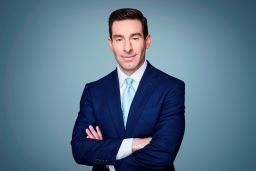Editor’s Note: Elie Honig is a CNN legal analyst and former federal and state prosecutor. The views expressed in this commentary are his own. Read more opinion on CNN. Watch Honig answer readers’ questions on “CNN Newsroom with Ana Cabrera” on weekends.
The acting US Attorney for the District of Columbia, Michael Sherwin, confirmed Thursday that his office is investigating potential criminal charges against “all actors here and anyone that had a role” in the storming of the US Capitol on Wednesday by a violent mob. Importantly, Sherwin vowed that “if the evidence fits the elements of a crime here, they’re going to be charged.”

This is exactly what prosecutors must do: Gather the evidence, impartially assess the law, and, if appropriate, bring criminal charges against anyone who had any role in the crime – even if one of those people is the President (or, soon, former President) of the United States.
Indeed, there is a criminal case to be made against President Donald Trump for his role in the assault on the Capitol. It’s not an easy case or an automatic win for prosecutors. But there is a legitimate case there for any prosecutor with the fortitude to bring it — and the ability to counter the defenses Trump’s legal team may use to fight back.
To understand why, let’s start with the evidence. None of this is in dispute. It’s based entirely on Trump’s actions and public statements.
First, Trump eagerly promoted the gathering. Simply put, the rioters would never have descended on Washington in the first place without Trump’s urging, egged on by the fundamental lie underpinning Trump’s entire cause: that the election had somehow been stolen from him, and that the results should not stand.
Trump tweeted to his 88 million-plus followers at least four times about the January 6 rally – timed to coincide with the formal certification of election results by Congress – and he promoted the event by promising fireworks: “Be there, will be wild!” At one point, a supporter tweeted, “The calvary [sic] is coming, Mr. President.” Trump replied, “A great honor.” (Also, remember: Back in September, when asked at a debate about his reluctance to condemn White supremacists, Trump responded with, “Proud Boys, stand back and stand by.”)
On January 6, immediately before the siege, Trump fired up the troops. Shortly before Trump took the mic, his increasingly deranged personal attorney Rudy Giuliani exhorted Trump’s followers to engage in “trial by combat.” Trump then stood before a crowd of thousands – many of them waving Trump flags and chanting “fight for Trump,” some unfurling Confederate flags. Trump boomed, “We’re gonna walk down to the Capitol. And we’re gonna cheer on our brave Senators and Congressmen and women. And we’re probably not gonna be cheering so much for some of them. Because you’ll never take back our country with weakness. You have to show strength and you have to be strong.”
The crowd roared.
Moments later, Trump’s crowd went down to the Capitol – precisely as he had instructed – and tore the place apart. They broke windows, destroyed property, entered restricted areas, and spilled blood. Five people died.
Even after the rioters had caused unprecedented mayhem, and even as he went through the motions of asking his supporters to leave, Trump celebrated what they had done. “Go home with love & in peace. Remember this day forever!” he tweeted. “We love you. You’re very special. Go home,” he told his loyal followers. “These are the things and events that happen” he rationalized, praising the people who had just overtaken police and stormed the Capitol as “great patriots.”
Remember: Trump said these things after the mob had stormed the Capitol, destroyed hallowed federal property, sent members of Congress into hiding under their desks, and spilled the blood of American citizens.
What federal criminal laws could apply here? I see at least three categories.
First, it is a federal crime to incite a riot – defined as a “public disturbance” involving an act of violence by at least one person in a gathering of three or more people resulting in damage to property or physical injury. There’s no question the people who physically breached the Capitol meet the definition of “rioting,” and then some. The only question is whether Trump “incited” them.
Trump’s defense likely would be that he was engaged in heated political rhetoric, which is protected under the First Amendment, but that he did not specifically encourage anybody to commit a crime. But given the evidence, I’d be entirely comfortable arguing to a jury that Trump’s words crossed the line: “stand back and stand by,” “be there, will be wild,” “we’re gonna walk down to the Capitol,” “you have to show strength,” “remember this day forever,” “great patriots.” Prosecutors often tell juries that when assessing the evidence they must apply their common sense. Any reasonable person can understand the obvious importance of Trump’s repeated calls to action.
Second, a series of federal laws makes it a crime to commit illegal acts on the Capitol grounds, to enter restricted federal government buildings without authorization, and to destroy federal property. It’s beyond dispute that the pro-Trump rioters smashed these laws. The only question is whether Trump bears any legal responsibility. Here, I’d rely on a federal law against aiding and abetting. Essentially, the law provides that even if a person does not commit a crime with his own hands, he is still liable if he “aids, abets, counsels, commands, induces, or procures its commission.” Pick your verb. I’d be confident arguing to a jury that Trump’s words and actions meet this standard, as well.
Third, there’s sedition. That’s a dramatic word, but the specific definition of seditious conspiracy under federal criminal law is fairly straightforward: to “conspire to overthrow, put down, or to destroy by force the Government of the United States… or by force to seize, take, or possess any property of the United States contrary to the authority thereof.” I’d focus on the latter provision here. No need to prove intent to topple the entire government – though there’s an argument along these lines – so long as the prosecutor can demonstrate that the intent was to take control of a federal building without permission. There’s no dispute this is precisely what the rioters did, just moments after Trump instructed them to “walk down to the Capitol” and “show strength.”
Hanging over all this is the potential for Trump to issue the first self-pardon in our nation’s history. According to the New York Times, Trump recently suggested to aides that he might pardon himself.
We simply do not know whether a self-pardon would be legal, primarily because no prior president has ever sunk to such depths of corruption and self-dealing. “I have the absolute right to pardon myself,” Trump tweeted in 2018. The argument for a self-pardon is simple: The Constitutional pardon power is broad and does not specifically prohibit a self-pardon. The argument against it, boiled down, is that the Framers abhorred self-dealing, and a self-pardon would be the ultimate violation of that principle. The Justice Department studied the issue in 1974 and concluded that a self-pardon would be invalid. Even Giuliani, of all people, opined in 2018 that a self-pardon would be “unthinkable.”
This matters, of course, because a self-pardon (if valid) would exempt Trump from federal prosecution for crimes related to the storming of the Capitol. And because the events occurred in Washington – which is entirely a federal jurisdiction – no state-level charges are likely to be brought against him.
Get our free weekly newsletter
I’m under no illusion here about how difficult it would be for any prosecutor to charge a president. The evidence is enough to charge and, I believe, to convict – but there is a viable defense. Further complicating matters, the case inevitably would be cast by some as politically motivated and would receive suffocating public attention. But this is the job prosecutors sign up to do: to make tough calls, without fear or favor. Sometimes the terrain is rough, and sometimes obstacles abound. But real prosecutors don’t look for the easy way out. Real prosecutors seek justice, even against the most powerful among us.






